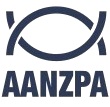| Carter, Dr. Philip |
Hopeless, Choiceless and Other Experiential Openings for Psychodramatic Theory and Practice (PDF, 251.3 KB) |
Journal 30 December 2021 |
auxiliary, Bohm, breath, choice, death, doubling, heart, interpersonal neuro-biology, loci of identity, love, Max Clayton, mirror neurons, mirroring, neuroscience, personal experience, responsibility, social field, social self, tele |
A warm-up One Tibetan breathing practice is to imagine a thick mass of toxicity below, breathe that into the belly and breathe out purified air. I assume the body is being used in the service of the universe. I give it a go. After a while, and totally unexpectantly, something else happens that I have never heard described. At the same time there is a cycling of muck coming in and clean going out, there’s another cycling of clean coming in and muck going out. It feels like two bellows being worked simultaneously but in opposite positions, interpenetrating each other in a yinyang way. |
2 |
2021-12 |
| Watersong, Ali |
Surplus Reality: The Magic Ingredient in Psychodrama (PDF, 84.0 KB) |
Journal 20 December 2011 |
as if, auxiliary ego, concretisation, imagination, locus nascendi, maximisation, neuroscience, protagonist, role reversal, social atom repair, spontaneity, status nascendi, surplus reality, systems theory, unconscious |
Anything that can be imagined can be created on the psychodramatic stage. This is the magic that makes surplus reality a central aspect and powerful tool of Dr. J.L. Moreno's psychodrama method. Through surplus reality a person is able to enter the unknown, live out their fantasies and become the creator of their own life. Using psychodramatic work as illustration, Ali Watersong demonstrates the way that surplus reality facilitates the development of spontaneity, brings about social atom repair and assists in the formation of a positive identity. |
11 |
2011-12 |
